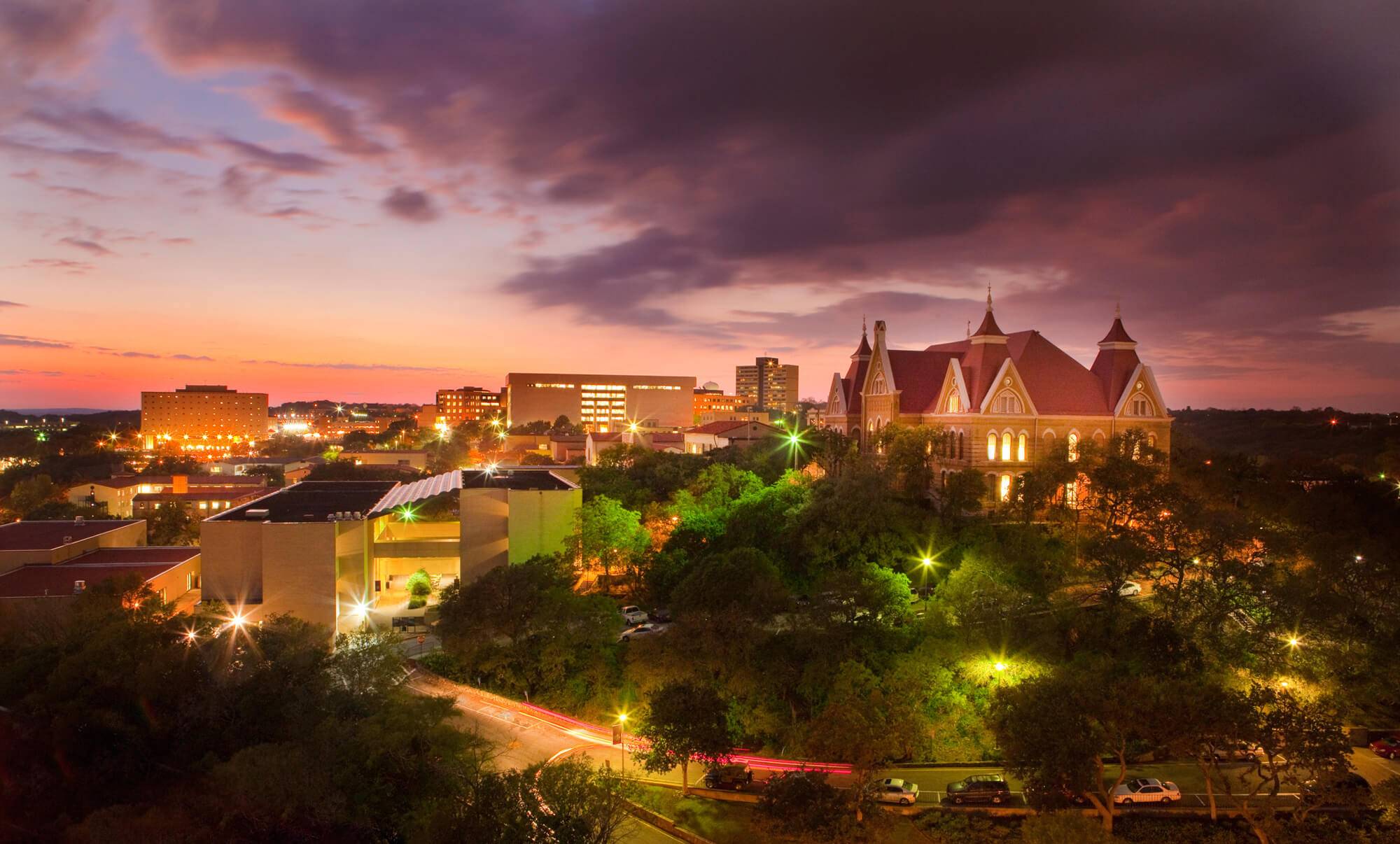Graduate Students Conduct Research On Summer Math Programs
August 15th, 2014 - San Marcos, TX

Math Education Ph.D. student Nama Namakshi leads math camp students in a discussion about a math concept. Namakshi combined hands-on fieldwork and scholarly research to further her dissertation work on mathematics education.

Mathematics Graduate student Jeanne-Marie Linker discusses a math question with a student in the Junior Summer Math Camp program.
This summer, four graduate students in the Mathematics Department had an unique research experience, combining field work and intensive hands-on activities. Nama Namakshi, Christian Starkey, Sonalee Bhattacharyya, and Jeanne-Marie Linker, all Mathematics Education students, worked in the Mathworks summer math programs, conducting research about pedagogy and classroom practices.
The graduate students' work was supported by the KDK-Harman, Meadows, and Sid W. Richardson Foundations. They worked alongside Math Department faculty Terry McCabe, Sharon Strickland, Hiroko Warshauer, and Max Warshauer. Rather than simply read articles and discuss ideas, the group of graduate students put their ideas to the test in the 2014 Junior Summer Math Camp (JSMC) program. The JSMC program includes more than 200 4th - 8th grade students, hailing from diverse socioeconomic backgrounds. Led by master teachers, the students learn algebraic concepts through hands-on activities and guided discovery learning. Students learn pre-algebraic and algebraic skills through visual models.
Namakshi, Starkey, Bhattacharyya, and Linker observed and participated in the JSMC program. They first conducted research about math education activities. Then they created plans to videotape classroom interactions between students and between teachers and students. The four graduate students also had opportunities to create their own lesson plans, and see those lessons implemented in the classrooms. They then discussed areas of improvement and success in the teaching of those math lessons. In addition, the graduate students attended math education courses alongside in-service teachers.
Starkey noted of her experience, “I feel I learned much more from observing and participating in the research process here than I would have by simply reading a bunch of articles on my own. I feel much better prepared to write my proposal and conduct my dissertation research after my experiences at Mathworks. At the math camp [Junior Summer Math Camp] I observed and videotaped multiple classrooms, which gave me an opportunity to interact with classroom teachers and elementary and middle school students, something that I had been previously lacking in my doctoral education.”
And Linker commented, “This was successful beyond expectation in providing what graduate students in mathematics education badly need but rarely find: experience that goes beyond the university classroom and into the field. ...I am new to the doctoral program, and through Mathworks I received a significant head start into my own research. The summer program allowed me access to and participation with middle-school students, educators with various levels of experience in the field, professional development programs, and curriculum design. In addition, with daily guidance from seasoned academicians, I was given the opportunity to write for publication in academic journals, practice videography for scholarly research, create and implement a coding rubric for videos, and plan for presentations in various seminars and conferences. I cannot imagine receiving all of this experience in a year of study, much less in eight-week summer program.”
Founded in 1990, Mathworks serves as a center for the research and development of math education programs. Its annual summer math programs for young students are an ideal "laboratory" for Texas State's Math Education Ph.D. students to conduct research, discuss topics with professionals who teach every day, and generate new ideas that ultimately impact math achievement for all students. By providing these rich research opportunities, Mathworks is helping Texas State University lead the way in mathematics education.
